1. La Cresta de Ilión by Cristina Rivera Garza. México.
Written originally in Spanish and translated into English in 2017. The book follows an unnamed narrator as he struggles with gender identity, personal identity, and the ideas of sanity, desire, fear, and freedom. It focuses on the unnamed narrator as he deals with three women who tell him he is a woman, but he attempts to debunk this idea.
2. Un amor by Sara Mesa. España.
The story of Un amor takes place in La Escapa, a small rural town where Nat, a young and inexperienced translator, has just moved in. Her landlord, who gives her a dog as a welcome gesture, will soon show his true face, and the conflicts around the rented house - a poor construction, full of cracks and leaks - will become a true obsession for her. The rest of the inhabitants of the area - the girl from the store, Píter the hippie, the old and insane Roberta, Andreas the German, the city family who spend there on weekends - will welcome Nat with apparent normality, while mutual misunderstanding and strangeness beat deep down.
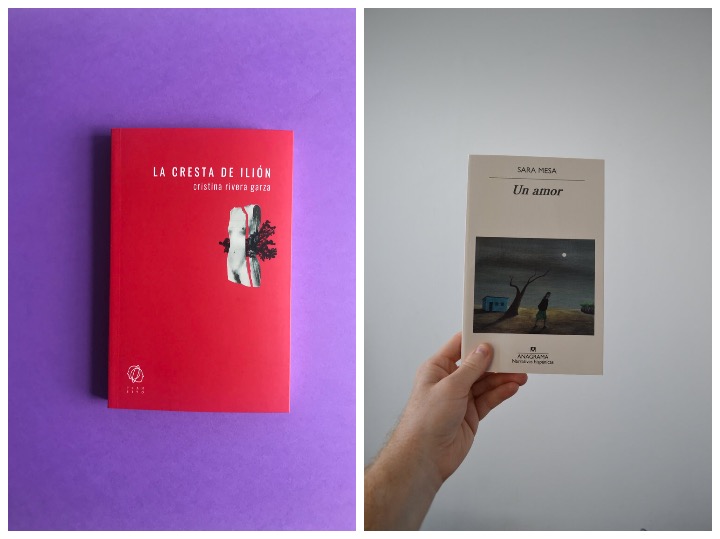
3. Acá Todavía by Romina Paula. Argentina.
The coordinates on which this novel is built are stated from the title. Here: a space recognized only by those who inhabit it, and still: that no time, that of yet, of now almost or until ... Andrea, protagonist and narrator, attends the death of her father and goes into the walled space of the present, although traversed by secret and not so secret passageways: memories towards which the future also slides.
Romina Paula's writing attempts against ontological dominance and arrogance. In this, as in his previous novels, he makes the language of the mutable, the unapproachable, the indefinable. His characters are not, but they are being and they acquire thickness thanks to the uniqueness of a voice whose roots are intertwined with pain and darkness, lightness and a sense of humour. They move in a zigzag, they search, they ask, they are on the side of those who prefer not to know.
4. No Soñaras Flores. Uruguay.
Twelve years after abandoning her daughter and her husband, Teresa has returned and is now waiting for them in a cafe. Every night a girl sits behind the counter of a bar and wonders why the night trains are slow. A "swamp of loss" unites in the house of the blind a group of people dragged by grief.
The characters in these eight stories, mostly girls, are about to be shipwrecked. Their illusions are broken, they have no escape. The failure of the couple, the games of friendship or the death of the father serve Fernanda Trías to explore fear, violence and, above all, loss. The author inhabits the world of stories in the same way that she inhabits her novels. Stealthily, with understated elegance. Delving into despair, drawing a stark world.
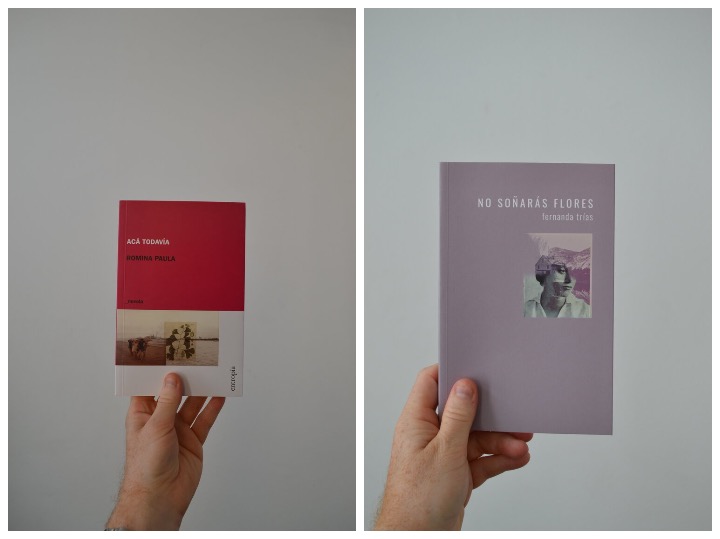
5. Duelo by Eduardo Halfon. Guatemala.
«You won't write anything about this, my dad asked me or ordered me, his index finger high, his tone halfway between supplication and commandment. I thought about answering him that a writer never knows what he will write about, that a writer does not choose his stories but they choose him, that a writer is nothing more than a dry leaf in the breath of his own narrative. But luckily I didn't say anything. You won't write anything about this, my dad repeated, his tone now stronger, almost authoritative. I felt the weight of his words. Of course not, I said, perhaps sincere, or perhaps already knowing that no story is imperative, no story necessary, except those that someone forbids us to tell. "
In this new book by Eduardo Halfon's literary project, the Guatemalan author, always investigating the mechanisms of identity construction, immerses himself in those that originate in fraternal relationships: mourning as combat that begins with the birth of a brother and mourning also as mourning for his death. A deep and emotional novel that increases the reputation of the author, "one of those very few writers - as the French magazine Lire pointed out - who do not need to write long to say much."
6. Habaneras by VVAA. Cuba
Ten stories, ten writers, ten incisive and different looks are brought together in this book, an unusual sample of the vitality and richness of contemporary Cuban literature. Habaneras is, in addition, the narrative voice of women, of the voices of these ten outstanding authors of three generations in full creative activity, with their particular vision of violence, love, dreams and antagonisms in late-nineteenth-century Cuba. Mirta Yáñez highlights the realism of the Cuban narrators. A realism that they have shaped by expanding the range of everyday life, magic, the supernatural, humor, fantasy. Behind, as a backdrop, is the political scene, society, ideas.
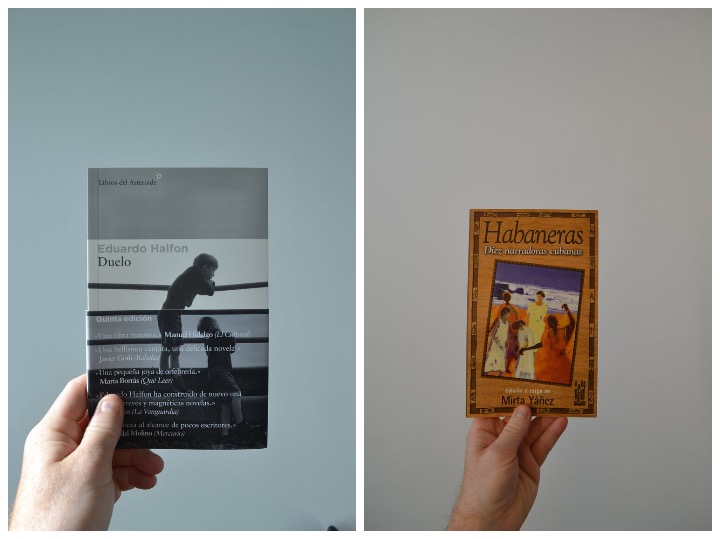
7. La Flor de Lis by Marosa di Giorgio. Argentina.
The Fleur de Lis is the last book by Marosa di Giorgio. Published by El Cuenco de Plata just two months before his death, it is the crowning glory of his work, and in a certain way closes the cycle of both his erotic stories and the exalted lyric of The Wild Papers. This edition includes the CD of her recital Diadema, which rescues another inescapable facet of the great writer.
Sensual to exasperation, triggered by a consciousness that seems to be made of an atavistic memory and an imagination that suspends moral judgments, Marosa's writing seems to dissolve the insurmountable distance between words and things.
8. Cómo Maté a mi Padre by Sara Jaramillo Klinkert. Colombia.
When I was eleven years old, a hitman killed my father. I was a girl who did not imagine that something like this could happen. But it happened. I still find it hard to believe that just thirty-five grams of steel and one gram of gunpowder could have killed a family.
When Héctor Abad Faciolince, author of The forgetfulness that we will be, read this first novel, he decided to publish it immediately; very soon after, Lumen would join in their enthusiasm. After the success in Colombia and while France is preparing its translation, How I killed my father reaches readers on both sides of the ocean as one of the literary revelations of recent times.
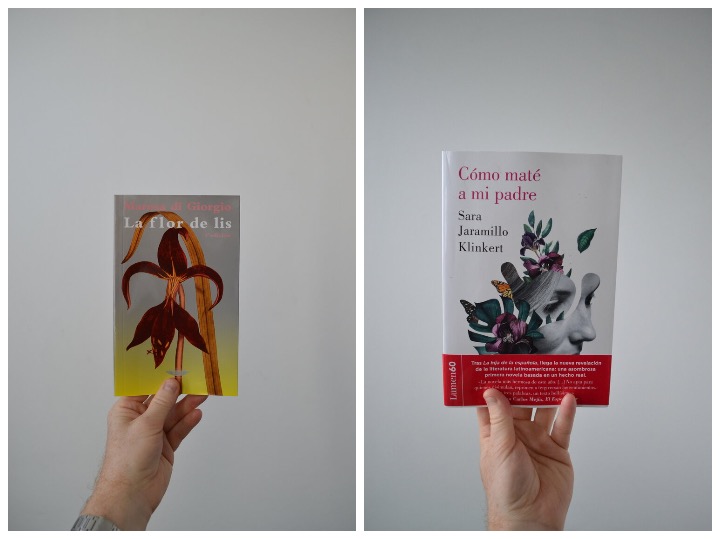
9. Chilean Electric by Nona Fernández. Chile.
Telling stories to finally save someone. But who? The lighthouse of that story heard as a child illuminates the night by giving some coordinates. In search of those coordinates, I come here, to the same setting that my grandmother chose to deploy her call for help, to leave me a small candle lit as a warning signal, "says the Chilean Electric narrator. Santiago's Plaza de Armas was artificially illuminated in 1883 and Nona Fernández's grandmother was at the opening ceremony. But it turns out that he was born in 1908, so that memory is false. This is the starting point for the exploration of family history that is undertaken in this book, which becomes an illumination of the "fearsome darkness" that prevails in Chilean history, with its disappeared, murdered, and hanged. A book illuminated, in turn, by some wooden horses, a typewriter and the corpse of a president who said "More passion and more affection."
10. La Trsiteza de los cítricos by Liliana Blunt. México.
In botany, "citrus blues" is a fatal disease that kills trees, staining them a dull gray and a deadly droopy look. Under this premise, Liliana Blum's stories reveal the impossibility of feelings and emotions threatened by the darkness that inhabits us or those we love. Liliana Blum mercilessly pruned the detachment, lies and violence that runs through our veins or is seen in our streets, where a father accompanies his daughter to a motel, a man stalks from the internet or drug trafficking kidnaps young people. Restlessness, restlessness or fear are the lifeblood of this forest; a heartbreaking force and evocation, its roots. Do you get inside it?
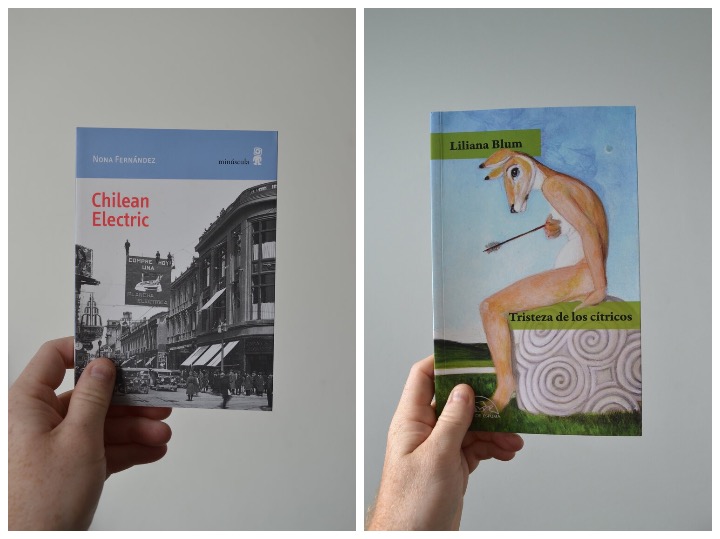
All the above books are available at Romancero Books, an online bookshop base in London selling literature from Latin America and Spain. Their catalogue covers themes such as Lorca, women writers from the Silver Age, new releases, exile and diaspora and new LGBTQI+ voices. They work with both large and small publishers from Spain and Latin America to bring together a remarkable collection of books, including short stories and pocket books. Their aim is to bring you the latest fiction, poetry, essays or children books, with a special focus on literature written by women authors. www.romancerobooks.co.uk
If you'd like to support this independent bookshop visit https://payitforward.london.gov.uk/romancero-books















